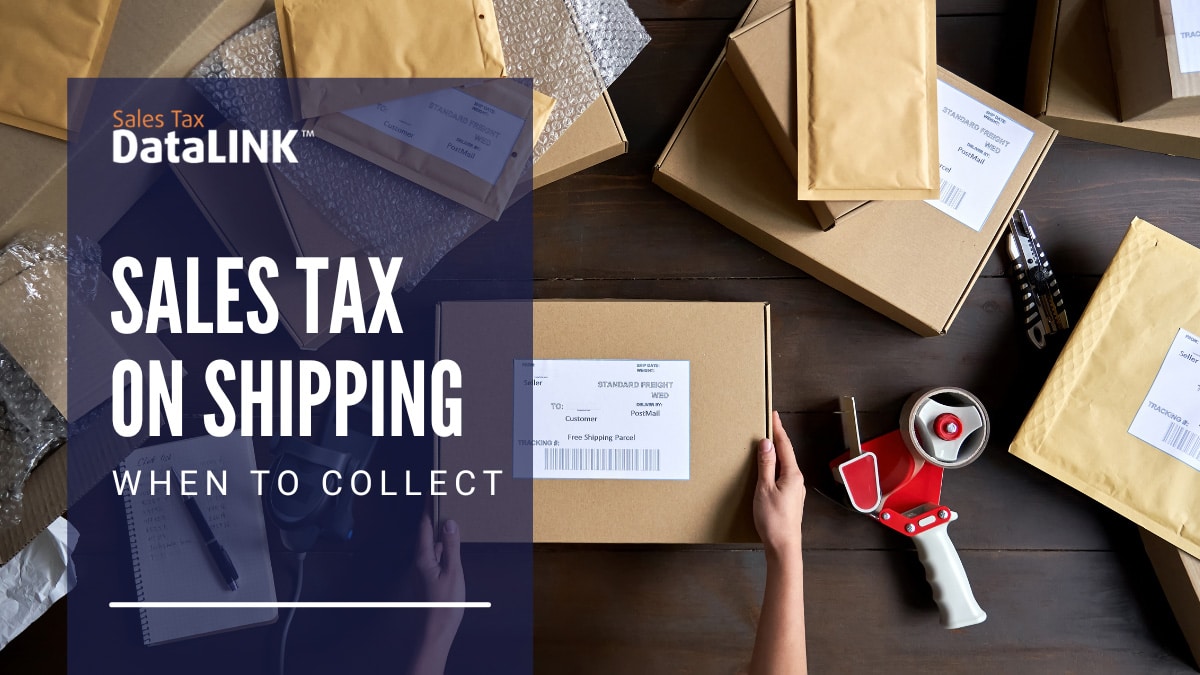COMPLIANCE IS COMPLICATED!
Sales tax compliance is complicated. Add in sales tax on shipping, and it can become even more complicated. It can be particularly complicated if you are a manufacturer, contractor, rancher, or provider in the oil industry — anything, other than a retailer. If you’re a retailer with customers in multiple states, your sales tax compliance is still likely to be complicated, since the Wayfair decision means that your company may be subject to hundreds or even thousands of sales tax jurisdictions. You must figure out whether your goods and services are taxable, whether you have nexus in the jurisdiction where they’re being delivered, and whether your customer might be tax-exempt. Then you have to figure out one more thing — is there a sales tax on shipping?
It should come as no surprise that there is no single answer to this question. It depends on the destination of the goods and how they’re delivered, as well as some other details. Each state has its own regulations on the question, so you can’t just make one decision and apply it to every transaction.
Let’s unpack the question.
WHERE IS SHIPPING TAXABLE?
One of the first issues is the destination of your goods. There are five states with no state sales tax. Shipping is never taxable in these cases. There may also be municipal taxes to consider. For example, some cities in Alaska charge sales tax even though there is no state sales tax. As of this writing, shipping is not taxable in Alaska as long as you separate it out as a distinct line on the invoice. However, you must check on the current rules when you prepare a shipment.
Among the states with sales tax, most consider shipping part of the cost of the goods. In at least 27 states, shipping is taxed. If you ship $100 worth of goods and the cost of shipping is $10, you will have to calculate sales tax on $110.
In some states, shipping is not taxable if it is listed separately from the goods, on a separate line of the invoice. Typically, shipping is not taxed if the goods are exempt from sales tax or if the customer pays directly (to the carrier, not to the seller of the goods) for the cost of shipping. However, there are still exceptions. For example, as of this writing, postage is not taxable in Indiana if it is on a separate line on the invoice AND if it is paid to the U.S. postal service. UPS or FedEx fees are taxable in Indiana, even if they are listed separately.
WHAT GOODS ARE TAXABLE?
Shipping on items that are not taxable also usually is not taxable, but it depends on the state. What if you have some taxable items and some which are tax-exempt? Say, for example, that you are shipping both a belt (not taxable) and a belt buckle (taxable) to a customer in Texas. You must collect sales tax on the entire cost of shipping.
Some states allow you to separate the cost of shipping for taxable items from the cost of shipping for tax-exempt items. This ends up being a lot like bundling since it can depend on your ability to make those calculations.
WHAT ABOUT HANDLING?
As of this writing, Nevada charges sales tax for delivery costs if they are listed separately, but not for postage or other costs of transportation. Imagine that $100 in goods is going to Nevada. If you pay $10 to USPS for shipping, and give that $10 its own line on the invoice, the $10 is not taxable. However, if there is also a handling charge to cover the cost of packaging, the handling charge is taxable. If you have a flat $9.95 for “shipping and handling,” that will be taxable even if it includes the postage you pay.
WHAT IF YOU DELIVER?
Shipping charges are usually taxable if they are undertaken by a common carrier. That’s a postal service or delivery service that is available to the public, like USPS and UPS. If you make deliveries in your own vehicle of your own products, even if you cross state lines, the cost may not be taxable. However, once again it depends on the jurisdiction. As of this writing, Texas would require you to charge sales tax on the delivery fee.
Colorado has a separate delivery fee which must be remitted to the state along with regular sales tax filings. This delivery fee is in addition to the sales tax, but the fee itself is not taxable. This has caused quite a bit of confusion, and the law may still be in a state of flux. However, companies with sales under $500,000 per year are exempt from this fee.
FIGURING IT OUT
It makes sense to look at the current laws on sales tax and shipping in each of the states where you are registered to collect sales tax. Then you must follow the specific rules for each jurisdiction. Since these laws change frequently, you will need to keep top of any changes in the laws.
For many companies, it just doesn’t make sense to put in the amount of time involved in checking these things each time you file, let alone each time you make a sale. It makes more sense to outsource your sales tax compliance to the experts at SalesTaxDataLINK. Call 479-715-4275 to set up a demo.




